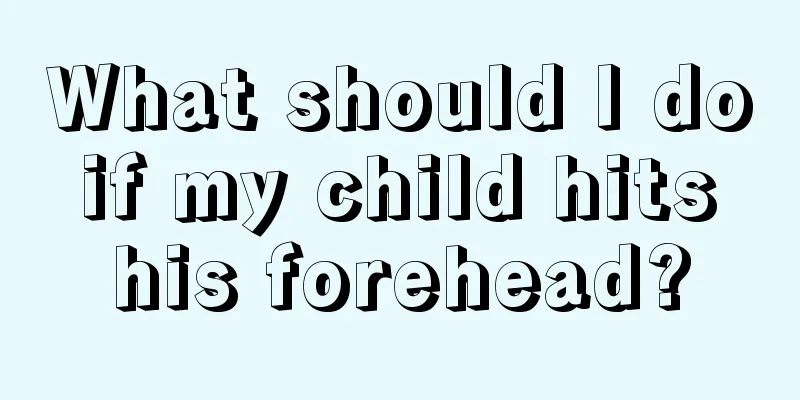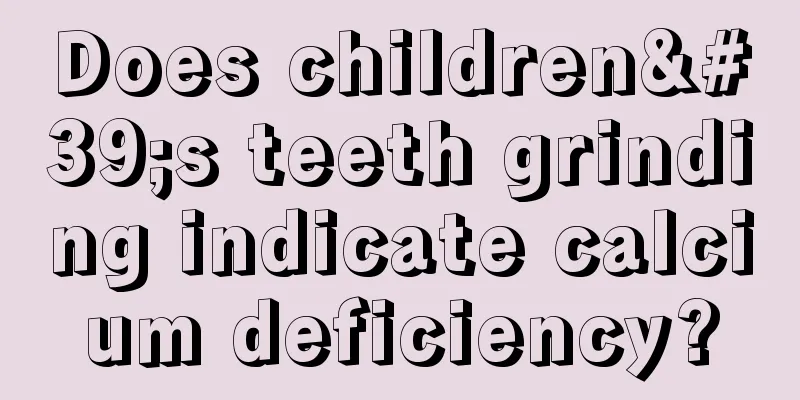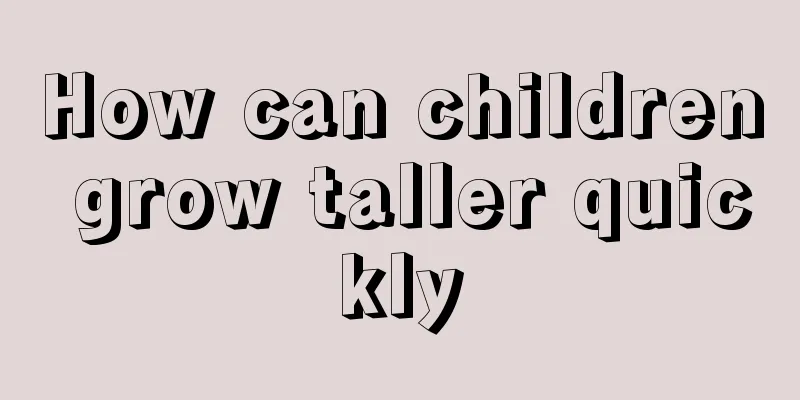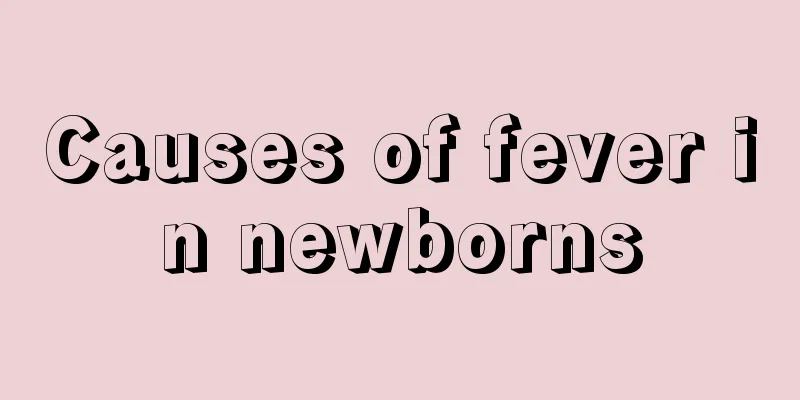What should I do if my child loses a tooth?
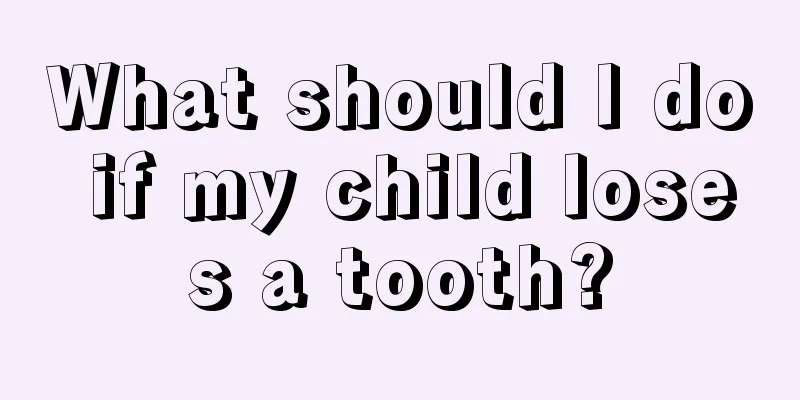
|
Children are the treasures of every family. At present, because there are relatively few children, the attention that parents pay to their children can be said to be unprecedented. Children will start to change their teeth when they are about six or seven years old, but some parents do not understand their children's growth period very well and are always worried about what to do if their children's teeth fall out? In fact, when children are changing their teeth, we need to pay attention to some issues and do a good job of caring for them during this period. When a child's teeth fall out, it is the process of the deciduous teeth falling out and the permanent teeth growing out. During the growth and development process, there is a permanent tooth germ under the root of each deciduous tooth, which gradually develops and grows. During the eruption of the permanent tooth, on the one hand, it compresses the alveolar bone between the deciduous tooth root and the permanent tooth germ, and through the action of osteoclasts, the bone is absorbed and thinned until it is completely absorbed; on the other hand, it directly compresses the deciduous tooth root, causing the deciduous tooth root to gradually absorb, become shorter and shorter, until it disappears completely. Then the deciduous teeth begin to fall out and the permanent teeth gradually grow in. Tooth replacement time Normally, at the age of 6 to 7, the deciduous central incisor (central front tooth) of the mandible begins to shake and fall out, and soon the permanent central incisor grows in its place; at the same time, the first molar grows behind the second deciduous molar. After that, the other teeth were replaced one after another. The permanent monocuspids and bicuspids can only grow out after the deciduous teeth in the same position fall out. By the age of 12 to 13, all the deciduous teeth have fallen out and have been replaced by permanent teeth. After that, permanent teeth will grow separately: the second molar will grow behind the first molar at the age of 12 to 14, and the third molar will grow after the age of 18. It is normal for some people to not have third molars. Tooth replacement care 1. Pay attention to whether the deciduous teeth are retained or lost prematurely. There is a certain time and order for the shedding of deciduous teeth. Deciduous teeth that should fall out but don't are called retained deciduous teeth, and the consequence is often that permanent teeth cannot erupt in the normal position. The most common situation is that the lower front permanent teeth grow on the inside of the deciduous teeth, and the upper front permanent teeth grow on the outside of the deciduous teeth, making it look like double teeth. What should we do in this situation? Your child should be taken to the hospital as soon as possible to remove retained deciduous teeth to make room for the permanent teeth to erupt. If the deciduous teeth fall out before they should, it is called premature loss of deciduous teeth. This often causes the adjacent teeth on both sides to tilt toward the gap between the missing teeth, making the gap smaller and causing the permanent teeth to erupt out of place due to insufficient space. At this time, a space maintainer (custom-made by the hospital's dental department) should be placed in the gap between the deciduous teeth to prevent the teeth on both sides from tilting, so as to maintain the proper eruption position of the permanent teeth until the permanent teeth erupt. 2. Pay attention to whether there is difficulty in the eruption of permanent teeth. If the deciduous teeth fall out prematurely, the child will get used to chewing and licking with the gums, which will become thick and tough, hindering the eruption of permanent teeth. Therefore, if your child has reached the age of replacing teeth but the permanent teeth have not yet grown, you should take your child to the hospital for examination in time to get the doctor's help. Calcium deficiency in children is also an important reason for the delayed eruption of permanent teeth. Parents should supplement their children with calcium in time. 3. Pay attention to the cleanliness of your child’s oral cavity. During the tooth replacement period, deciduous teeth and permanent teeth coexist. The permanent teeth have just erupted, especially the "six-year teeth" which are the "key to occlusion". They are large in size and have many pits and fissures on the occlusal surface, which easily retain food residues. In addition, most children do not like to brush their teeth and like to eat sweets, so caries often occur. Once it occurs, it should be treated early. The most important thing at this time is to teach your child to brush their teeth correctly. 4. Pay attention to correcting children’s bad habits. During the tooth replacement period, when the deciduous teeth are loose and about to fall out, children often have the habit of licking the loose teeth with their tongues. This is a bad habit that will affect the normal eruption of permanent teeth and should be corrected in time to prevent malocclusion, that is, uneven teeth arrangement. 5. During the tooth replacement period, children's teeth are replaced, the jaws are developing, and the bite relationship is gradually established. Sometimes a temporary misalignment of the bite may occur, but during the development of the teeth, it can often adjust itself and return to normal. Some malocclusions, such as when the frenulum of the upper lip is too low, causing the gap between the upper front teeth to be too large and cannot be adjusted by itself, will affect facial development. You should go to the hospital for diagnosis and treatment, otherwise it will affect the child's appearance. Children are the future of the family and the hope of the whole family. Letting children have good teeth is not only helpful for their image, but also will determine their future diet. Therefore, during the period of children's tooth replacement, we must pay attention to their diet, strengthen the care of their children during the period of tooth replacement, always pay attention to their teeth, and let them develop good habits and not lick their new teeth with their tongue. |
<<: What causes amblyopia in children?
>>: When does the baby start to change teeth? What should I pay attention to?
Recommend
What to do if your child is prone to coughing
Children's coughing is not something that sho...
Breakfast matching method for two-year-old babies
As the baby grows up day by day, diet is very imp...
What to do if your child has a fever for no reason
Every child will always encounter some health pro...
Baby is straining to poop
Some parents find that their babies have to exert...
What should I do if my child always likes to watch TV?
With the improvement of people's living stand...
What is the cause of baby's baldness on the pillow?
The phenomenon of babies sleeping on their pillow...
What to do if your child urinates less frequently
Children urinate less frequently but more often, ...
Can children digest snail shells?
Although snails taste delicious, they live in wat...
Why do children grind their teeth?
The growth of a child is mixed with the hard work...
What to do if your eight-month-old baby crosses his eyes
We often see many newborn babies with crossed eye...
How to treat gingivitis in children?
The occurrence of gingivitis is closely related t...
What causes tinnitus and hearing loss in children?
Hearing loss and tinnitus are common ear problems...
What are the symptoms of zinc deficiency in children?
The body of a child needs balanced nutrition, whi...
What should I do if my child grows slowly?
I believe that parents are most afraid of hearing...
What should I do if my baby eats jujube pits?
Red dates have high nutritional value. Whether ea...

